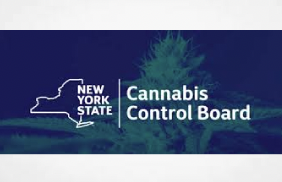It appears they are big supporters of the CO tax approach
Introduction
Colorado’s progressive approach to cannabis legalization has become a big change in the landscape of cannabis laws across the United States. We will delve into the significance of Colorado-style cannabis laws and their impact on the broader context of cannabis legalization. Our aim at Planet 13 Las Vegas is to provide a comprehensive overview of these laws and how they have transformed the cannabis industry.
Regulatory Framework
Colorado’s regulatory framework for cannabis is a critical aspect of its success. The state has implemented comprehensive regulations governing the cultivation, distribution, and retail points of the cannabis industry. These regulations ensure safety, quality control, and ethical practices throughout the supply chain. By examining the critical elements of this framework, we can better understand how Colorado has created a thriving and responsible cannabis market:
- Legalization and Licensing: Colorado legalized both medical and recreational cannabis. The state established a system for licensing and regulating cannabis businesses, including cultivation, manufacturing, distribution, and retail.
- Licensing Categories: The state had various licensing categories for different aspects of the cannabis industry, including cultivation, manufacturing, testing, and retail. There were separate licenses for medical and recreational cannabis activities.
- Licensing Requirements: Prospective cannabis business owners had to meet strict eligibility criteria to obtain licenses. These criteria typically included background checks, residency requirements, and compliance with certain financial and legal standards.
- Local Control: Local municipalities had the authority to ban or regulate cannabis businesses within their jurisdictions. This led to variations in regulations and availability of cannabis products across different areas of the state.
- Cannabis Tracking System: Colorado implemented a comprehensive cannabis tracking system to monitor the movement of cannabis and cannabis products throughout the supply chain. This system aimed to prevent diversion to the black market and ensure compliance with regulations.
- Packaging and Labeling: Strict rules were in place for packaging and labeling of cannabis products to ensure safety, proper dosing, and accurate information for consumers.
- Taxes and Revenue: Cannabis sales were subject to various taxes, including sales taxes, excise taxes, and special taxes. Tax revenue generated from cannabis sales was allocated to various programs, including education and public health initiatives.
- Advertising and Marketing: Regulations were in place to restrict the advertising and marketing of cannabis products, especially towards minors. This included limitations on advertising content and placement.
- Consumer Safety: Colorado mandated testing for potency, contaminants, and other quality and safety parameters for all cannabis products before they reached the retail market.
- Public Consumption: Laws prohibited the consumption of cannabis in public places. Consumption was generally restricted to private residences.
Read full article https://www.planet13lasvegas.com/2023/08/07/colorado-style-cannabis-laws-an-exploration/


















